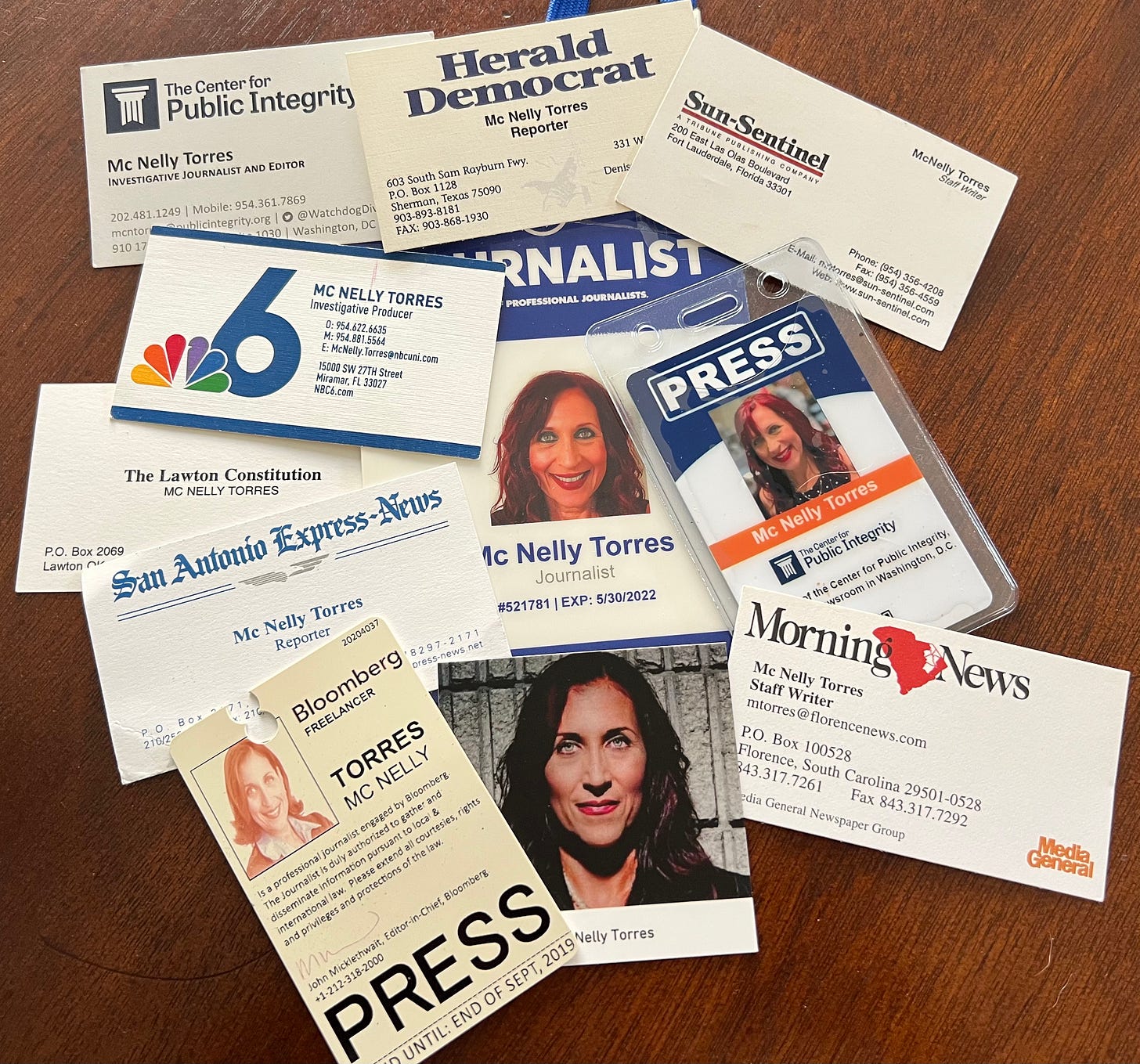Launching today: Don’t Forget My Voice
A newsletter to empower people who feel marginalized in the journalism industry.
Welcome to the first installment of Don’t Forget My Voice, a newsletter to help you navigate journalism’s chaotic and toxic maze. I’m Mc Nelly Torres, a longtime investigative journalist, editor, trainer and mentor.
If you are a journalist who belongs to a marginalized group, whether you are a Latinx, or someone of color, a member of the LGBTQ+ community, a disabled person or someone like me, who grew up poor — in short, if you feel marginalized as a journalist, this newsletter is for you and about you.
Why ‘Don’t Forget My Voice’?
After much thought and discussions with my sounding board, I named this newsletter Don’t Forget My Voice because it reflects my work within the industry and the journalism I produced for years, which always had a clear mission to give a voice to the voiceless.
But the name Don’t Forget My Voice also mirrors the struggles I’ve endured as a Latina over the years. It’s tenacious and passionate, like me, and I will dare to challenge the journalistic traditions that no longer serve the public and never served marginalized journalists.
Investigative journalism has always been at the center of everything I’ve done. I have shared my skills and knowledge with others through training and mentoring for decades here in the U.S. and abroad.
My vision for this newsletter is to provide useful content that makes you feel seen as I write about important issues and problems the industry doesn’t want to address.
Dr. Martin Luther King Jr. once said: “Our lives begin to end the day we become silent about the things that matter.”
We are told that talking about our experiences will hurt our careers if we speak about former employers in a negative light.
But how can I ignore a career filled with challenges, colorful stories, wonderful people, tears and ugliness at its worst?
How can I forget the lessons I learned along the way and those that touched me deeply or made me cry?
Why would I keep to myself how I learned to see through the mud and learn to identify those who were not looking out for my best interest?
If you’ve read this far, I hope you’ve enjoyed it. Please share it with others, leave a comment and join the conversation.
For the second newsletter, I will discuss the story behind something I did decades ago after my editor caved in and omitted important information the public needed to know. The third piece will provide details on how the largest county jail escape in Comanche County history helped me address pay inequities in my newsroom and what I learned from that experience.
Until next time.
Follow Mc Nelly on Bluesky, Threads, LinkedIn, X, Substack Notes and be part of the community I’m building online. Drop me a note if you want to provide feedback, would like me to discuss a specific subject, collaborate or just to say hello at mcnellytorres@substack.com.
Never miss an update—every new post is sent directly to your email inbox. For a spam-free, ad-free reading experience, plus audio and community features, get the Substack app.
Tell me what you think
Be part of a community of people who share your interests. Participate in the comments section, or support this work with a subscription.







I couldn't agree more that we need to talk about bad experiences in the industry and your reasons for wanting to do so!
Thank you for voicing your thoughts here. I think there are valuable lessons that newsrooms often ignore because they don't want to deal with tense and complex issues. I'm all about facing things head on. Ain't that why we all became journalists? If you are a parent and your child is struggling with reading, for example, would you ignore it or try to find out how you can help him/her/their?